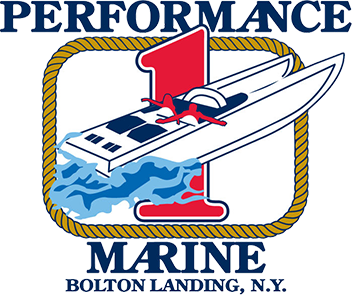Lake George Boat Inspection Program Has Begun
As of this May 16, anyone who trailers a boat to Lake George will be required to first visit one of six stations to have the vessel inspected for invasive plants and animals. If infected, the boat will be diverted to one of eight boat washing stations for decontamination. Once certified as “clean, drained and dry,” the boat can be launched anywhere on the lake.
The Aquatic Invasive Species Prevention program, which is based on new regulations adopted by the Lake George Park Commission, was two years in the making.
“The invasive species prevention effort has been a state and local partnership from the beginning,” said Lake George Park Commission executive director, Dave Wick.

The lake's new Inspectors were instructed in boat washing techniques at training sessions at the Lake George Forum earlier this spring. Photo courtesy of LGA.
Local governments and The Fund for Lake George contributed half of the costs to operate the program in its first year; New York State appropriated the other half. The program is expected to cost at least $700,00 annually.
Inspectors have been assigned to Norowal Marina in Bolton Landing, Dunham’s Bay in Queensbury, the transfer station on the Luzerne Road in Lake George, Rogers Rock campground in Hague, Mossy Point in Ticonderoga and Huletts Landing Marina.
At least one wash station has been installed at each of these sites to clean boats that have yet to certified as free of invasives.
A website, LakeGeorgeboatinspections.com, has been developed to provide boaters intending to launch on Lake George with information about the Lake George Park Commission’s new prevention program, including directions to inspection stations.
“If you don’t know where to go, or need more information about the program, this will tell you,” said Dave Wick. “It’s a great site, which will be constantly updated. The Governor’s office created it, with help from Emily DeBolt.”
DeBolt, the Lake George Association’s outreach coordinator, also worked with the New York State Department of Transportation, Warren County’s Department of Public Works and local highway departments to install signs directing boaters to the nearest inspection station.
According to DeBolt, 24 signs have been installed on state and county highways and town roads.
The Lake George Association also assisted with the design and dissemination of printed material publicizing the program.
According to the Lake George Park Commission, an inspection is expected to last no more than ten minutes.
“Many types of aquatic invasives are extremely small and can live in just a few tablespoons of lake water or even on wet ski ropes. As such, boat bilges, anchors, trailers and the rest must be checked. Once the boat passes inspection, it receives a Vessel Inspection Control Seal (VICS) from the inspector, and that boater can then be launched,” the Commission stated.
The free, heated, high-pressure wash for contaminated boats will take ten to twenty minutes, the Commission said.
“No chemicals are used in this decontamination system. Studies have shown that this system is highly effective at killing and removing invasive species from boats and trailers,” the Commission stated.
According to Dave Wick, approximately fifty people have been hired to staff the inspection and boat washing sites.
Earlier this spring, the Commission held a four-day training session at the Lake George Forum for those who have been hired.
The session, which covered all aspects of inspection and decontamination of trailered boats, was financed by The Fund for Lake George and conducted by D and Michael Davis, who have trained inspectors across the western United States and in Canada.
“We were proud to support this critical component of the Prevention Program on Lake George,” said Eric Siy, The Fund’s executive director. “Effective training of inspectors will translate into effective protection from new invasives that so seriously threaten our waters.”
Boats permanently berthed on Lake George do not require an inspection.
Over the winter, the Commission conducted a “frozen boats” inspection program to certify as “clean, drained and dry” the thousands boats that have sat in storage facilities or in backyards since last fall.
Boats exposed to cold temperatures have been determined to be invasive-free and thus pose no threat to Lake George.
“In general, three days of continuous freezing is long enough to kill any aquatic invasives on a boat or trailer,” said the LGA’s Emily DeBolt. “And we certainly had more than three days in a row of below freezing temperatures this past winter.”
“The frozen boats agreements really helped us start the program efficiently,” said Bolton Supervisor Ron Conover. “Bolton has a large number of marinas and storage facilities, and this effort was a common-sense solution to the problem of getting local boats back on the lake quickly without compromising the integrity of the program.”
Between dusk and dawn, when inspectors are not on duty, municipal launch sites will be closed.
The Mossy Point and Rogers Rock Campground launches, both owned and operated by New York State’s Department of Environmental Conservation, will be open at night but monitored by stewards whose wages will be paid by the coalition of local governments and The Fund for Lake George known as SAVE.





